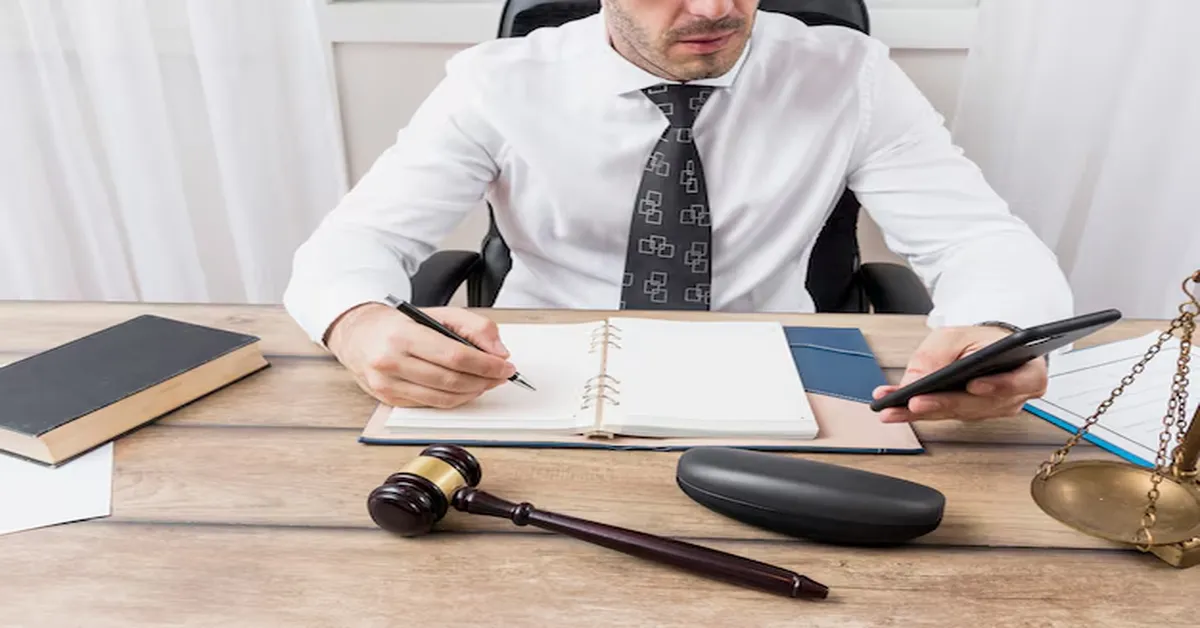Facing criminal charges can be a daunting experience, and having a skilled criminal defense attorney by your side is crucial. Whether you’re dealing with minor offenses or serious felonies, a qualified defense lawyer can protect your rights, build a strong case, and guide you through the legal process.
In this article, we’ll explore the role of a criminal defense attorney, their responsibilities, how to choose the right one, and what to expect during legal proceedings. If you or someone you know is facing criminal charges, this guide will provide valuable insights to help navigate the complexities of the legal system.
What Is a Criminal Defense Attorney?
A criminal defense attorney is a legal professional specializing in defending individuals and entities accused of criminal offenses. They work to protect their clients’ legal rights and ensure a fair trial, whether negotiating plea deals, challenging evidence, or representing clients in court.
Roles and Responsibilities
- Investigating the case and gathering evidence
- Interviewing witnesses and building a defense strategy
- Representing clients during police interrogations and court trials
- Negotiating plea bargains and reduced sentences
- Filing motions to dismiss or suppress evidence
- Providing legal advice and explaining potential case outcomes
Types of Criminal Cases They Handle
A criminal defense attorney can handle a variety of cases, including but not limited to:
1. Misdemeanors
- Shoplifting
- DUI (Driving Under the Influence)
- Public intoxication
- Simple assault
2. Felonies
- Drug trafficking
- Homicide
- Armed robbery
- Sexual offenses
3. White-Collar Crimes
- Fraud
- Embezzlement
- Identity theft
- Insider trading
4. Federal Crimes
- Tax evasion
- Cybercrimes
- Counterfeiting
- Human trafficking
Each case requires a unique defense strategy based on the severity of the crime and the available evidence.
Key Responsibilities of a Criminal Lawyer
A criminal defense lawyer’s role goes beyond courtroom representation. Here’s what they do:
1. Case Assessment & Investigation
They review all charges, examine police reports, and analyze evidence to find weaknesses in the prosecution’s case.
2. Legal Representation in Court
If the case goes to trial, the attorney presents arguments, cross-examines witnesses, and delivers closing statements to persuade the jury.
3. Negotiating Plea Deals
They may work out a deal with prosecutors to reduce charges, lessen penalties, or avoid a trial altogether.
4. Protecting Constitutional Rights
A defense attorney ensures that law enforcement follows due process, preventing unlawful searches, coerced confessions, and wrongful convictions.
How to Choose the Right Criminal Defense Attorney
Selecting the right lawyer can make a significant difference in your case outcome. Here’s what to consider:
1. Experience in Criminal Law
Look for attorneys with a strong background in handling cases similar to yours.
2. Track Record of Success
Research past case results, reviews, and client testimonials.
3. Communication & Availability
A good attorney should be responsive, clear in explanations, and available when needed.
4. Fees & Payment Structure
Understand their billing structure—whether they charge a flat fee, hourly rate, or require a retainer.
5. Local Knowledge
A lawyer familiar with local courts, judges, and prosecutors may be advantageous in negotiations.
The Criminal Defense Process Explained
Facing a criminal charge involves multiple legal stages. Here’s what to expect:
1. Arrest & Booking
- The suspect is taken into custody and processed.
2. Initial Hearing & Bail
- The judge sets bail, which may allow release until trial.
3. Pre-Trial Motions
- Defense attorneys can file motions to suppress evidence or dismiss charges.
4. Plea Bargaining
- If applicable, the defense and prosecution may negotiate a plea deal.
5. Trial & Sentencing
- If no plea is reached, the case goes to trial. If found guilty, sentencing follows.
An experienced criminal defense attorney will guide clients through each step, ensuring the best possible outcome.
Common Legal Defenses Used in Criminal Cases
A skilled defense attorney may use different strategies, such as:
- Self-Defense: Justifying actions taken to protect oneself.
- Lack of Evidence: Arguing that the prosecution has insufficient proof.
- Alibi: Providing evidence that the accused was elsewhere during the crime.
- Entrapment: Showing that law enforcement induced the crime.
- Insanity Defense: Claiming the accused was mentally incapacitated at the time.
Each defense depends on the case specifics, evidence, and legal arguments available.
Cost of Hiring a Criminal Defense Attorney
Factors Affecting Legal Fees:
- Attorney’s Experience: Highly experienced lawyers charge more.
- Case Complexity: Serious felonies cost more than misdemeanors.
- Trial vs. Plea Deal: Going to trial increases costs.
- Geographical Location: Prices vary by region and law firm.
Typical Fee Structures:
- Hourly Rates: $150 – $700 per hour
- Flat Fees: $1,500 – $15,000 (depending on the case)
- Retainers: Paid upfront, often $5,000 – $20,000 for serious cases
It’s essential to discuss fees upfront and get a written agreement to avoid surprises.
READ MORE: What Was I Made For? Discovering Purpose & Meaning
Conclusion
A criminal defense attorney is your best ally when facing legal troubles. Whether it’s negotiating a plea deal, challenging evidence, or representing you in court, having an experienced lawyer can make all the difference.
If you or a loved one needs legal representation, don’t wait—consult a criminal defense attorney today.
Frequently Asked Questions (FAQs)
1. What should I do if I’m arrested?
Stay calm, invoke your right to remain silent, and ask for a lawyer immediately.
2. Can a criminal defense attorney get my charges dropped?
Yes, depending on the evidence, legal errors, and available defenses.
3. How long does a criminal case take?
It varies. Misdemeanor cases may resolve in weeks, while felony trials can take months or years.
4. Do I need a lawyer for minor charges?
Yes. Even minor offenses can have long-term consequences like fines or a criminal record.
5. What if I can’t afford a lawyer?
You may qualify for a public defender, but private attorneys often provide stronger defense strategies.
Call to Action:
Do you have legal concerns or need expert advice? Contact a trusted criminal defense attorney to discuss your case today!









